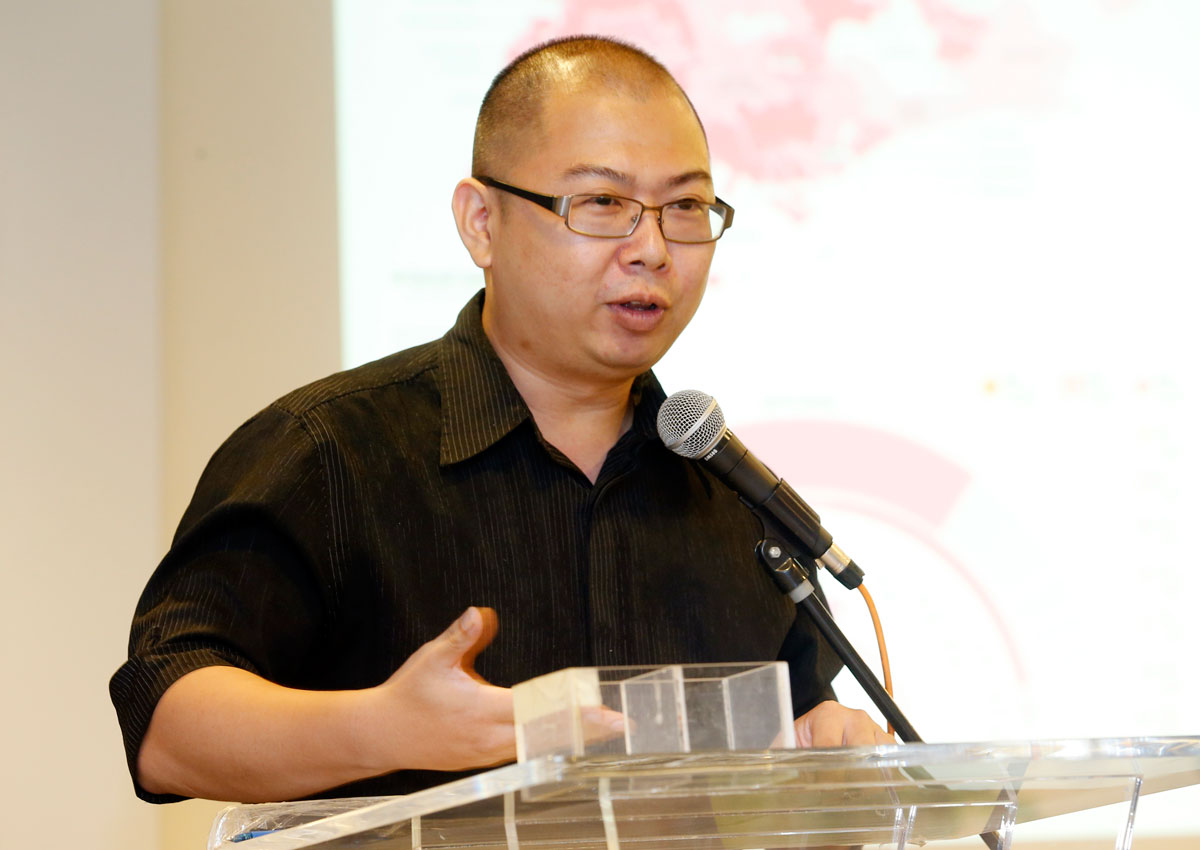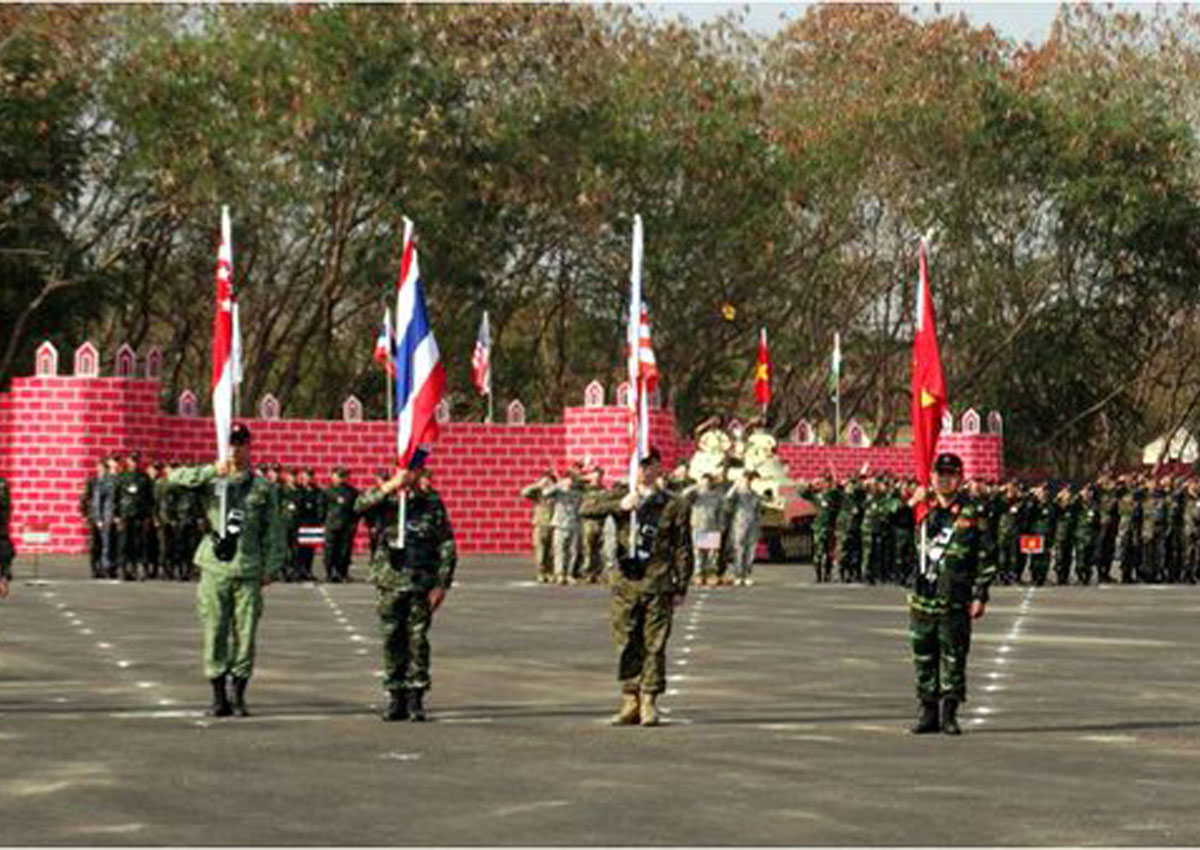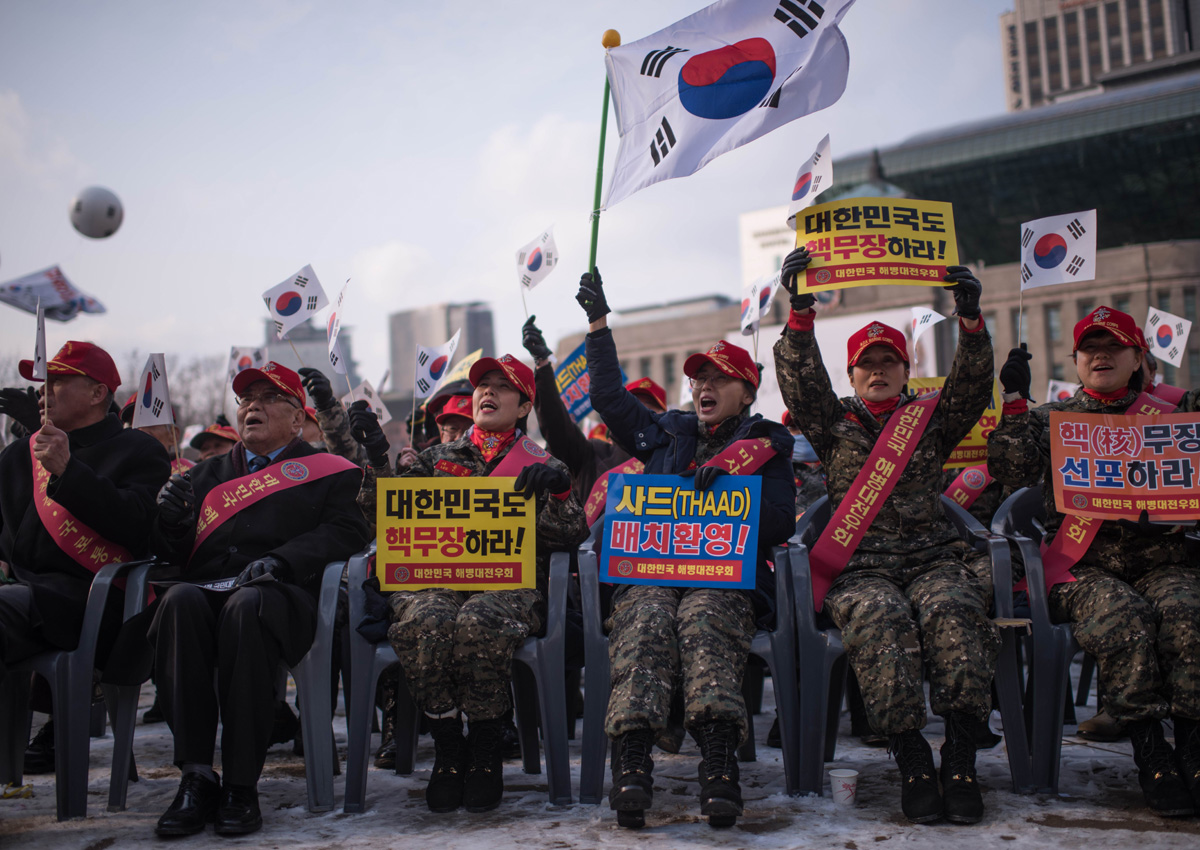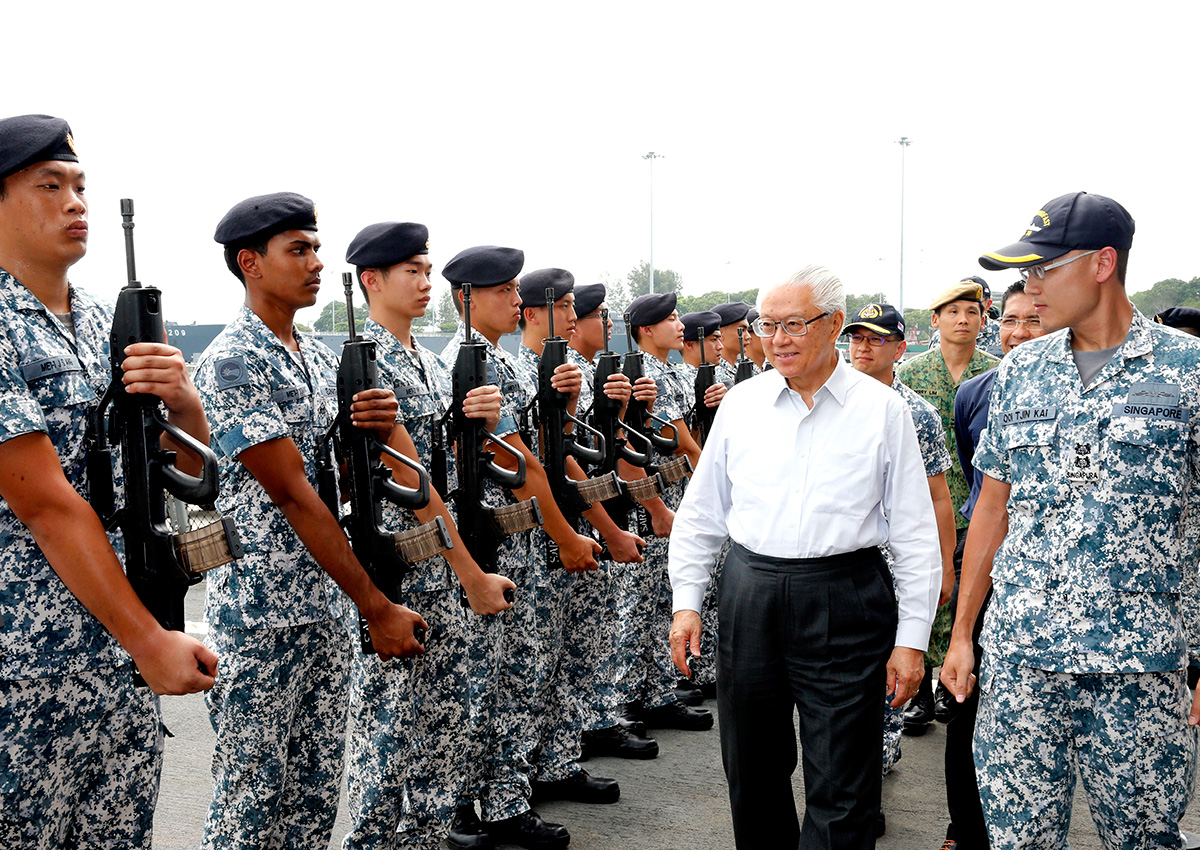A day after Home Affairs and Law Minister K. Shanmugam charged that it had engaged in a “planned, orchestrated campaign using falsehoods” to blemish the police, The Online Citizen (TOC) denied that it had deliberately misled the public.
“Given the dearth of information available to us, it is natural that some of our reports were not fully accurate,” the socio-political blog wrote on its website, arguing that “inaccuracies are not the same as falsehoods”.
TOC had published 25 related articles after 14-year-old Benjamin Lim was found dead on Jan 26 at the foot of the Housing Board block in Yishun where he lived. Earlier that day, he had been questioned by police for the alleged molestation of an 11-year-old girl.
Asked about TOC’s editorial yesterday defending itself, the Home Affairs Ministry said the police had already said on Feb 1 that there would be a coroner’s inquiry (CI) into Benjamin’s death. “(The minister) has given a full response in Parliament on the falsehoods put out in this matter, and has also explained why questions addressed to the ministry or the police cannot be answered, prior to the CI. There are proper processes in place to establish the facts,” a spokesman said.
In Parliament on Tuesday, Mr Shanmugam addressed the issue to set out the facts and maintain public confidence in the police. Describing Benjamin’s death as tragic, he hit out at “deliberate falsehoods” that have been spread in the case to tar the police. He took particular aim at TOC, saying its articles “practically (led) people to conclude that Benjamin committed suicide as a result” of how the police handled the case.
But TOC said only four of its articles were written in-house. The rest were letters and opinion pieces contributed by members of the public. “Their reactions were spontaneous”, and this was “hardly an orchestrated campaign”, it said.
A “falsehood” highlighted by Mr Shanmugam was contained in a Feb 5 article, which quoted a woman who claimed that officers went to Benjamin’s school wearing attire with police markings. The minister made it clear that all the officers were in plain clothes. Investigations showed that TOC received its information from a Facebook post by a woman, who admitted to getting her dates mixed up. She later took down her post.
TOC said yesterday that it had contacted her on social media to verify her claims. It also said it reached out to the police and other officials before publishing the article, but did not receive any replies.
Mr Shanmugam pointed out TOC’s “tactics” in posing questions to the authorities, then implying a cover-up when no response was forthcoming. The minister explained that the authorities had chosen not to comment in detail on this case out of respect for the family and as there was a CI.
In a Feb 23 article, TOC detailed the questions it had sent to the authorities, and titled the piece “Questions about Benjamin Lim’s case, Home Affairs Minister and SPF cannot answer”. TOC insisted yesterday that it believes “in giving all sides a chance to speak. Soliciting answers to pressing questions isn’t a ‘tactic’. It is merely journalism”.
After Mr Shanmugam’s ministerial statement on Tuesday, social activist Ravi Philemon, 47, wrote on Facebook that “the minister was right” for thinking that TOC put up a “planned, orchestrated campaign”. When contacted by The Straits Times, the former editor of TOC clarified that while the articles may have tried “to get justice for the student”, they “inadvertently also implied that the school and the police were less forthcoming”.
And while not all the articles were written by TOC, he added, this “does not absolve the editors” of responsibility as they decide which pieces are put up.
Mr Shanmugam also highlighted that making claims about Benjamin’s case could have infringed rules of sub judice, since an inquiry was pending. The rules of sub judice, which is Latin for “under judgment”, regulates the publication of matters that are under consideration by a legal proceeding.
Veteran lawyer Amolat Singh said a person may be held in contempt of court for violating these rules, and agreed that a CI was the right forum to lay out the facts of what happened.
“The problem with the court of public opinion is, there are no rules. Sometimes, the one who shouts the loudest gets the furthest,” he said. “There is no scope for a forensic examination of the facts.”
What TOC said, what minister said
Home Affairs and Law Minister K. Shanmugam said in Parliament on Tuesday that The Online Citizen (TOC) had published about 20 articles which included allegations that were practically leading people to conclude that 14-year-old Benjamin Lim had committed suicide as a result of how the police handled the case.
WHAT TOC SAID
A parent of a student in the same secondary school as Benjamin said her son’s account differed from the police statement that officers turned up at the school wearing plain clothes.
WHAT MR SHANMUGAM SAID
TOC supposedly relied on a posting by a woman who stated that her son had seen officers wearing polo T-shirts with the word “Police” on them. However, when the police checked with her, she said she had got her dates mixed up.
WHAT TOC SAID
It raised questions about Benjamin’s case to the police and various agencies, as well as to Mr Shanmugam, but did not receive a reply.
WHAT MR SHANMUGAM SAID
A key reason that he and his ministry refrained from making substantive comments on Benjamin’s death was out of respect for his family, and to give the family time and space to grieve.
WHAT TOC SAID
It ran several accounts drawing parallels between cases, suggesting that police conducted investigations in an intimidating and inappropriate matter.
WHAT MR SHANMUGAM SAID
These allegations were “entirely speculative”, without regard for what actually happened in Benjamin’s case.
The Online Citizen now a one-man show
The team behind socio-political website The Online Citizen (TOC) has shrunk, and the site turns 10 this year as a one-man show.
Chief editor Terry Xu, 34, told The Straits Times yesterday that TOC is “only run by one person at the moment because it has no money to pay any writers or editors”.
Many in its core team of editors and contributors in the past – prominent names in the civil society circuit – are no longer involved with TOC. Neither is it organising political forums or staging rallies at Hong Lim Park as it was around 2010.
Four men had held editorial roles with the website in September 2013. Besides Mr Xu, they are lawyer Choo Zheng Xi, blogger Andrew Loh and Mr Howard Lee, who does freelance media liaison work. Former editors also include Mr Ravi Philemon, a Singapore People’s Party candidate in last year’s general election. Former Non-Constituency MP Gerald Giam of the Workers’ Party was once deputy editor.
TOC was gazetted as a political association in 2011, requiring it to declare all donations. It also cannot receive foreign donations. It now relies heavily on crowdfunding and on reader contributions.
In its online call for submissions, TOC says it “might not” publish articles with unverifiable facts, vulgarities, or possible legal implications.
But its practice of this editorial policy has come under scrutiny, after Home Affairs Minister K. Shanmugam accused it of launching a “planned, orchestrated campaign” to discredit the police over the handling of a molestation allegation involving 14-year-old Benjamin Lim.
Former TOC editors are split over Mr Shanmugam’s comments.
Mr Philemon said there was a need for “appropriate moderation” and fairness in any commentaries that are published.
But Mr Choo and Mr Lee said Mr Xu had done his best to get all sides of the story and tried to seek comments from the Government.
This is not TOC’s first run-in with the authorities. Last year alone, it was issued at least three take-down notices for its articles.
One was for a letter written by the lawyer of teen blogger Amos Yee, which was deemed to be in contempt of court. Another was for an allegation that government monies would be used to finance the construction of an underground city for a population of 10 million.
In the third case, the Government invoked an anti-harassment law after TOC published and refused to take down an interview with Dr Ting Choon Meng, whose company sued the Defence Ministry in 2011 for infringing its patent for a mobile emergency medical station.
‘Consult parents if kids are in police probes’
Parents feel they should be consulted if their school-going children are involved in police investigations.
They were speaking to The Straits Times after a parliamentary discussion on Tuesday about the death of 14-year-old North View Secondary School student Benjamin Lim, who was questioned by police in January over a molestation allegation.
Although parents appreciate that schools have protocols in place when a student is asked to assist in investigations, some pointed out that schools should not have the right to release a child to the police without their permission.
Currently, parental consent is not needed when police want to interview a student, Acting Education Minister (Schools) Ng Chee Meng said in Parliament on Tuesday.
Benjamin was taken into custody on Jan 26 for allegedly molesting an 11-year-old girl. His mother was notified and he was taken to Ang Mo Kio Police Division, unaccompanied by school staff or his parents.
After being released on bail, he was found dead at the foot of his family’s block later in the day.
Information technology manager Alex Yeo, 43, who has three children aged seven to 13, said: “Any parent would be upset if a school does not ask for permission and allows the police to take his child away. Perhaps the police could have gone to the boy’s house, instead of the school, later that day and he would have been under the care of his parents by then.”
In Parliament on Tuesday, Home Affairs Minister K. Shanmugam addressed these concerns, saying that when police went to the school in Yishun, they did not know Benjamin was the boy who appeared in closed-circuit TV footage they had retrieved.
“If the police wait, and he molests someone else in the meantime, the question would be why the police did not move faster,” he added.
Some parents agreed with this stance, saying they would have wanted the case to be settled as soon as possible if they were the girl’s parents.
Part-time tutor Judy Ho, 43, who has a 14-year-old daughter, said: “The police have to do their job and answer to the other party involved. They can’t be waiting for the parents to show up at the school.”
Housewife Fanny Chan, 45, who has four children aged seven to 17, said she understood that police had to act with urgency, but added that the boy may not have known how to react in such situations.
“If a parent can’t be there, a teacher whom he is familiar with should have gone along,” she said.
Others asked for police protocols to be reviewed, calling for schools to ensure that a student is accompanied by an adult throughout any investigations.
Engineer Robert Tan, 54, who has three sons aged two to 12, said: “Investigations need to be conducted as fast as possible but you could have kept the boy in the school, and not let him get away.”
On Tuesday, Mr Ng said: “It is not the practice of the police to allow teachers or school staff to be with the student in the police car.
“Current police protocols do not allow other persons to be present when the student is undergoing questioning at the police station.”
byseow@sph.com.sg
waltsim@sph.com.sg
limyihan@sph.com.sg
calyang@sph.com.sg
yuensin@sph.com.sg

This article was first published on March 3, 2016.
Get a copy of The Straits Times or go to straitstimes.com for more stories.












































































































